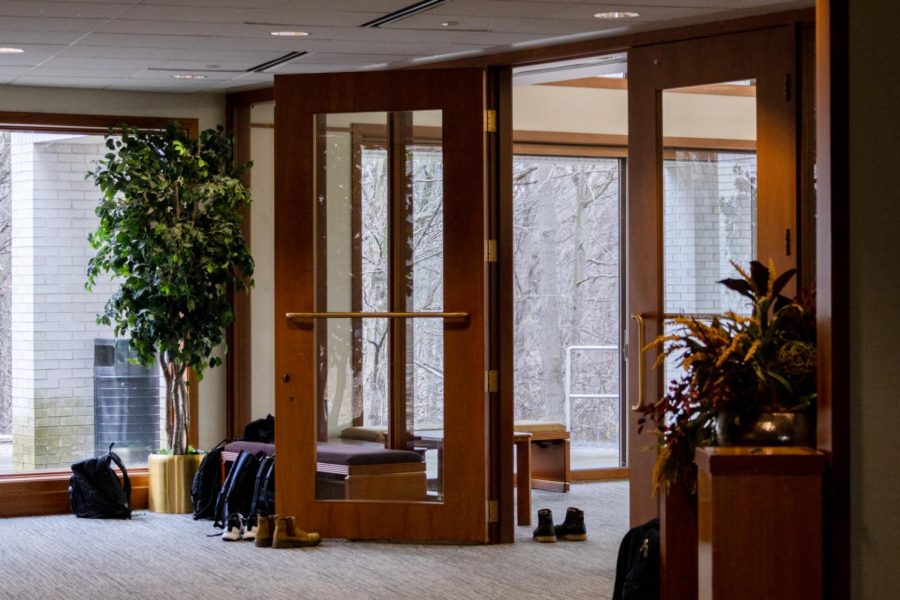Muslim Students Association creates space for culture and community
Mar 20, 2023
Grand Valley State University’s Muslim Students Association (MSA) is a student organization that provides a place for Muslim students and any others interested to learn more about the Islamic faith and support its members.
The group holds many different events and community outreach programs throughout the school year.
MSA’s Advisor and Program Manager at GVSU’s Kaufman Interfaith Institute, Zahabia Ahmed-Usmani, appreciates the club’s attempts to reach out to students at the university and connect with students of all faiths and backgrounds.
“The MSA events have been shared out via the Kaufman Interfaith Institute, particularly the Jummah prayers (prayers held on Friday) which are open to any student to observe,” Ahmed-Usmani said. “There have been a number of spiritual life fairs, convened by the Kaufman Interfaith Institute in which the MSA has tabled and shared about the organization. Additionally, they have made a strong effort to open up events for the greater community.”
MSA has worked to make themselves welcoming and available for students of all faiths.
The organization has been especially adept at incorporating events which involve group prayer. One such example is their Jummah prayers, a prayer which occurs on Friday in Muslim communities. The Jummah prayers have been the organization’s most consistent event held most Fridays. MSA, in addition to holding these prayer meetings, also seeks to provide support and resources for students to help “navigate life at GVSU.”
Additionally, March 22 marks the start of the month of Ramadan which is the holiest month in the Muslim calendar. During this month, people will fast from sunrise to sundown, one of the pillars or principles of Islamic tradition, engage in prayer and refrain from immoral behavior.
“Ramadan is a busy time for Muslims,” Ahmed-Usmani said. “Our lives turn inward, and we focus on praying, doing good deeds and resetting our own personal acts of worship. In this way we reprioritize how we live. I know they plan to do an interfaith Iftar (a meal that is eaten after sunset during the month of Ramadan) and also at least one other event during this semester.”
Though no official MSA events have been announced yet for Ramadan, the organization is still holding their Jummah prayers Fridays at 2 p.m. in the Cook-Dewitt Center Lounge.
For MSA, opening the organization to members of outside of the Muslim faith helps to spread awareness about their religion and further intertwine with community members.
“I appreciate the way the MSA leadership has made the effort to be inclusive of the entire community,” Ahmed-Usmani said. “They have an awareness of who isn’t present in their spaces and they are trying to bring folks in.”
The club has been working to rebuild after participation during and post-COVID-19. While many clubs suffer from this issue, a big part of MSA’s efforts has been reaching out to Muslim students as well as non-Muslim students who might be interested in the faith or looking for a new place to connect.
“I think they have done a good job at listening to the people who are attending MSA meetings to learn more about what they want from the group and trying to rebuild the group to the pre-COVID robust campus entity,” Ahmed-Usman said.






















